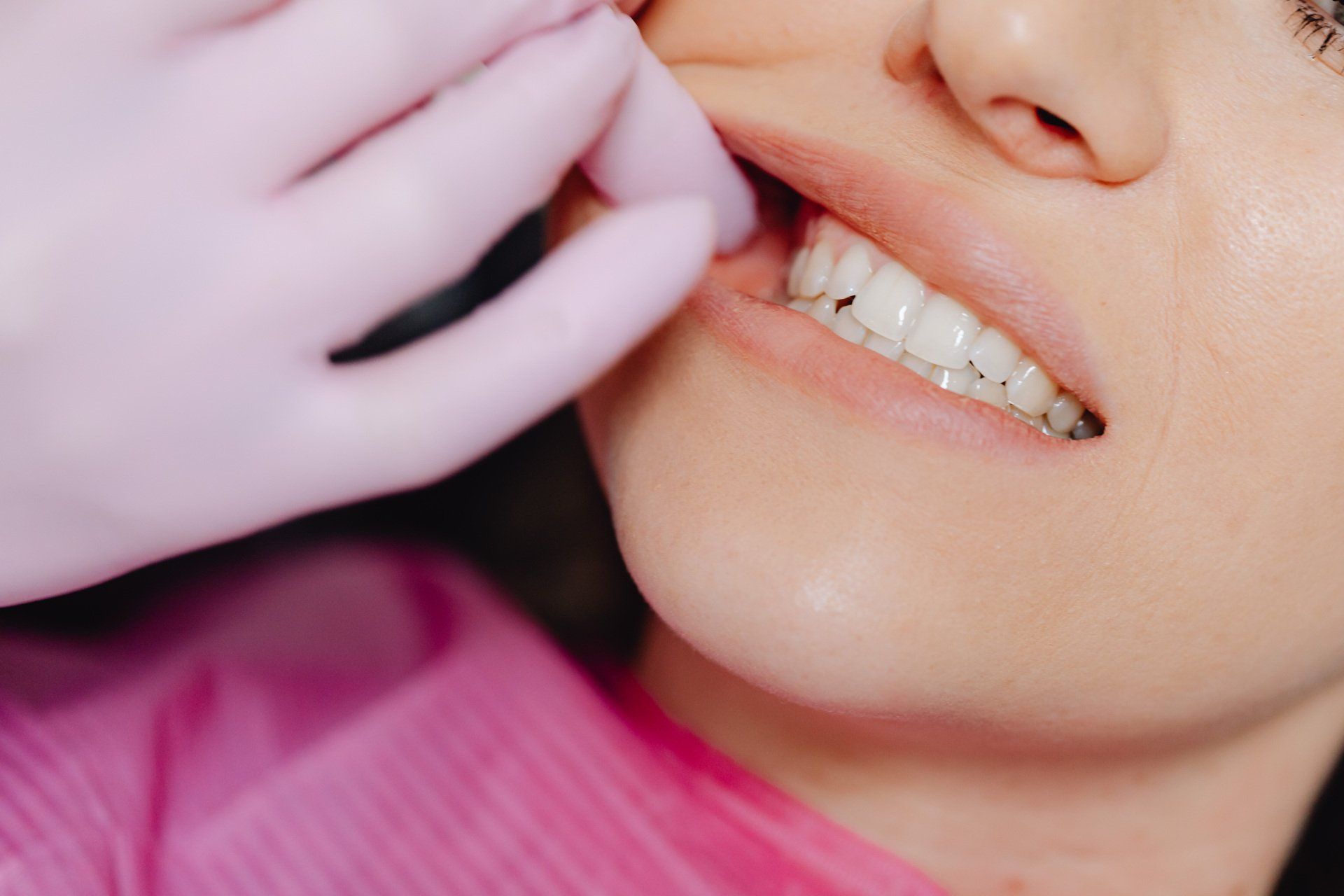April 11, 2025
Staying on top of your oral health can often feel like a balancing act—making sure you brush and floss regularly, scheduling cleanings, and remembering those occasional check-ups. But one factor that sometimes slips under the radar is the effect of nighttime teeth grinding (bruxism) or jaw clenching. When left unaddressed, these habits can have a long-lasting impact on your smile and even contribute to disrupted sleep. Here at South Temple Dental , we believe that a custom night guard can play a pivotal role in ensuring you enjoy both peaceful rest and well-protected teeth. Understanding the Consequences of Teeth Grinding Teeth grinding, also known as bruxism, is more common than many realize. In fact, about 10% of adults and 15% of children in the United States are believed to experience bruxism . This condition can manifest itself through telltale signs such as worn-down enamel, morning headaches, jaw soreness, or even small fractures in teeth. Over time, repeated grinding can also strain the muscles in the jaw, creating tension that radiates into the neck and shoulders. If you notice you wake up with a tender jaw or suspect you are clenching during sleep, it’s wise to talk with a dental professional about whether a custom night guard is right for you. A well-fitted appliance serves as a protective shield between the upper and lower teeth, effectively minimizing the chances of serious deterioration or discomfort. How Night Guards Help Protect Your Smile When it comes to care for mild to moderate bruxism, a custom night guard is specifically molded to your teeth. Unlike over-the-counter products, these tailored guards take into account the natural alignment of your teeth and jaw. They fit securely in your mouth, making them more comfortable to wear—and a comfortable fit can also translate to better sleep quality. By ensuring your teeth do not make direct contact, a night guard can help prevent: Enamel erosion or wear. Chipping and cracking of teeth. Strain on the jaw muscles. In addition, if you have existing dental work such as crowns, veneers, or fillings, using a night guard can be an extra layer of insurance against potential damage. With protective sleep solutions like night guards, you can rest easier knowing your smile is shielded through the night. Acquiring a Custom Night Guard Getting fitted for a custom night guard is typically a simple process. First, you’ll visit your dental practice, where impressions of your teeth are taken. These impressions are then used to craft a night guard that fits seamlessly to your upper or lower teeth (or sometimes both, if that’s what your dentist deems best). After the guard is ready, you’ll have another appointment to ensure its shape and alignment feel natural in your mouth. This personalized approach typically results in an appliance that is much more efficient at preventing grinding than store-bought “one-size-fits-all” options. Moreover, your dentist can adjust its thickness or coverage if you need additional accommodations, such as for certain bite patterns or orthodontic work. Adjustment Period: What to Expect Many individuals adapt quickly to their new night guard, often finding it a surprisingly simple measure for relieving tension and preventing tooth-to-tooth contact. However, it’s not uncommon to experience mild discomfort the first few nights of wearing it—especially if you’ve never slept with a mouth guard before. Being consistent with usage tends to ease these sensations. During this period, some people also notice drooling or difficulty closing their lips entirely around their new appliance. These side effects usually subside after a short while, as your mouth becomes accustomed to the feeling. If feelings of discomfort persist or intensify over time, we encourage you to schedule a follow-up appointment. A minor readjustment can make all the difference in your overall comfort. Keeping Your Night Guard in Prime Condition A night guard is an investment in your smile, and proper maintenance goes a long way in extending its lifeline. You can typically clean the guard by gently scrubbing it with a soft toothbrush and a mild, non-abrasive cleanser—while liquid hand soap can do the trick, be sure to avoid cleansers or denture tablets containing harsh chemicals. Afterward, rinse it thoroughly with cool or lukewarm water. High temperatures may warp the material, so be sure to keep the guard away from hot water or the dishwasher. Storing your night guard correctly will also help protect it from warping and collecting bacteria. Many dentists provide a sturdy carrying case, and it’s essential to let the guard dry before placing it back in the container. For extra tips or personalized guidance, see our resources at South Temple Dental’s Night Guard Services Page and call us if you ever have concerns about the fit or condition of your guard. Boosting Overall Sleep Quality While protecting your teeth is a major benefit, the right night guard can also pair well with an overarching approach to improved sleep. Feeling relaxed, physically and mentally, is important before bed. Some helpful strategies to complement your night guard usage might include winding down with soothing music, reading briefly under soft lighting, or avoiding electronics right before sleep. Establishing a consistent bedtime routine—such as turning off devices at least 30 minutes before bed—allows your mind to enter a calm state conducive to deeper rest . Incorporating a nightly routine along with your guard can assist not only with bruxism but also with the overall quality of your sleep. Investing in Your Long-Term Oral Health A custom night guard offers more than just a comfortable night’s rest. It’s an active step toward preserving your enamel, stabilizing your jaw alignment, and minimizing the need for additional restorative procedures in the future. Waking up without jaw or tooth pain can set a positive tone for your entire day, a small but meaningful improvement in your overall quality of life. Taking the time for a custom-fitting with your dental professional can yield significant returns in the form of healthy, strong teeth—teeth that aren’t subjected to overnight grinding or clenched pressure. When cared for properly, a quality mouth guard can last for several years, making it a comprehensive, cost-effective solution for many patients. If you’re considering adding a protective appliance to your nightly routine, our team at South Temple Dental is here to help. We welcome any questions you may have about the fitting process, care regimen, and how to properly incorporate a night guard into your bedtime routine. By taking this simple but impactful step, you can safeguard your smile from the wear and tear of everyday life and rest easy all night long.



